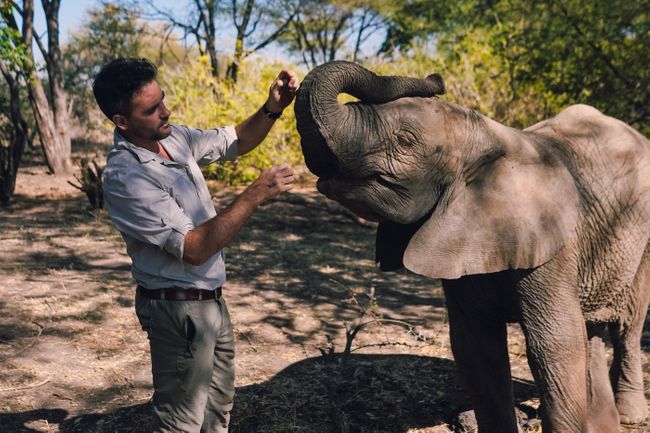Yeah. You have to have an armed guide in Botswana National Park, and this guy came with me; he was a lovely guy and this was part of his job. He was involved in ‘wildlife management’ – which is euphemism for culling certain animals, but he also did hunt commercially in Botswana as well. Something that he was very open to talk about.
And there is a compelling argument on both sides, I have to say. I’m not an advocate of hunting at all, and I can’t see why anyone would want to go and shoot an elephant or any species frankly, but, but there is a very strong, powerful argument that if it weren’t for these hunting reserves that constitute millions of acres across Africa, far more than national parks and wildlife reserves, then what would happen to that land? It would get turned into farmland and there’d be less areas for wildlife to roam.
And actually, hunting, trophy hunting, as perverse as it feels when you see these people putting pictures on Facebook, only accounts for a tiny fraction of elephant deaths, certainly a lot less than illegal poaching and far, far less than human-elephant conflict as a result of habitat loss.
But we don’t sort of get up in arms about the fact that local farmers killed an elephant because it’s eaten all the crop, for obvious reasons. But the point is that we do get fixated on the stuff that we see on Facebook rather than the real issues, or the elephant in the room, so to speak.











